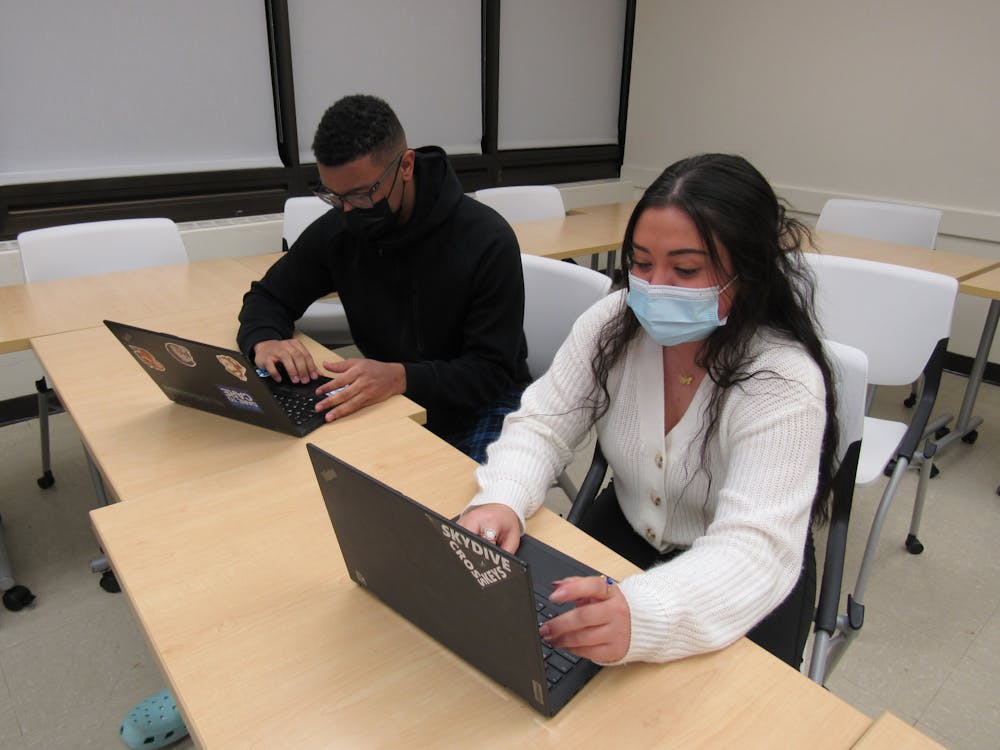The University announced that the first two weeks of the spring 2022 semester would be conducted online after which it would transition to in-person learning.
This announcement came weeks after other universities across the country made similar decisions citing concerns regarding the spread of the omicron variant.
In an email sent on Jan. 6, the Health Intervention and Communication Team announced Seton Hall’s temporary pivot to online instruction.
In reaction to the University’s decision to hold the first two weeks online, some students were disappointed but understanding, viewing the policy as inevitable given the projected rise in cases.
Maddie Mindham, a junior business management major, said that she was sympathetic to the concerns that shaped the University’s decision, but still prefers in-person learning.
“I understand the reasoning behind why they did it. However, I feel like the first two weeks of classes are pretty crucial,” Mindham said.
The University was able to adhere to their plan and after two weeks of online learning, transitioned to in-person learning on Jan. 31.
“I think that a two week break was a good thing just to be safe rather than sorry,” Mindham said.
For some students, they felt there was a massive difference in quality between online and in-person learning.
“I definitely prefer meeting people and getting to know those around me in the classroom. Online work is difficult for me because I lose motivation,” Ani Chudzik, a sophomore music production major, said. “Being in person is ideal because I feel more engaged with my work and I am more likely to talk in class and interact.”
Ammar Elshikh, a sophomore biology and philosophy major, shared similar views.
“I prefer in-person because it's harder to focus online and there are always technical issues when online, like poor connections and professors or students not knowing all the features of Microsoft Teams,” Elshikh said.
Elshikh said he was glad to transition to in-person learning.
“Going back to in-person learning was the right choice, it was better for my mental health and it is easier to retain information when in an in-person setting,” Elshikh said.
Jackie Morgentaler, a junior secondary education and history major, said she strongly opposed the University’s decision to hold the first two weeks online.
“I find it incredibly hard to stay focused and engaged online and I’m distracted throughout each class,” she said. “Online classes don’t provide me the same quality of education as in-person instruction. Remote learning has made education especially difficult for students with disabilities or specialized learning needs.”
Morgentaler said that as a student with ADHD, online learning exacerbates the academic struggles she already experiences.
“I think that continuing remote learning would have been an absolute tragedy because the money, time, and effort students put into their classes, the quality of remote instruction simply is not fair,” Morgentaler said.
Morgentaler said that COVID-19 should not be viewed as the only threat to students’ well-being.
“The mental health concerns with remote learning and the isolation that comes with it should be treated as a public health concern, too,” Morgentaler said.
For some students, online learning is not an ideal option for them. In-person learning allows students to engage with one another and learn material in a classroom setting.
“Perhaps two weeks hybrid with a remote option, but fully and forcibly remote for any extended amount of time is a disservice to both students and professors,” Morgantaler said.





